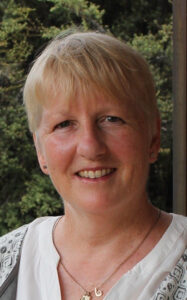Nurses moving into a senior role or advanced practice position can be faced with transition difficulties including negative behaviour from their previous peer group.1 Even nurses who have been in such a role for some time can find themselves, for many reasons, in a perfect storm of isolation, bullying and blaming.

In this article, we briefly explore these negative behaviours in the context of the nursing profession, in terms of the phenomenon of oppressed group behaviour (OGB).
Oppression has been described as “structural phenomena that immobilise or diminish a group”.2 It requires “a set of norms that are determined by a dominant group and a belief that those outside of the dominant group are inferior”.3 It is important to note that oppression is rarely recognised but frequently internalised.4
OGB occurs “when the oppressees direct their anger and sense of helplessness and hopelessness about their oppression to members of their own group.”5 Psychologists have long understood the phenomenon of OGB and its devastating impact on teams and individuals.4 It has been recognised as a problem in nursing for at least four decades.6
Psychologists have long understood the phenomenon of oppressed group behaviour and its devastating impact on teams and individuals.
We contend that despite the widespread understanding of OGB in nursing research, it remains unknown to the majority of nurses. As a result, the associated behaviours are misunderstood and allowed to flourish, causing irreparable damage to careers, livelihoods and the self-esteem of victims.

You may be thinking: “What makes nursing oppressed? I am not oppressed!” Oppression in this case is gendered and professional. The health system in which we work is a highly gendered masculinist environment where the dominant and valued knowledges are science, medicine and finance.7 As a feminised workforce, nursing suffers deeply rooted oppression, which results in a profession characterised by high public trust, but undervalued, with enforced homogeneity and silence.
The five facets of OGB are: exploitation, marginalisation, powerlessness, cultural imperialism and violence.2
Exploitation: A weak professional identity9 has led to an exploited and fragmented nursing profession. Despite being the one of the largest workforces in the country, nursing is fractured along practice groups, hierarchies and the importance of practice settings. This fracture has created lateral othering (being dismissive and critical of those in similar roles) and vertical discounting (being critical or dismissive of those in senior positions or vice versa — dismissing those with less seniority) in the profession, which distract us from low pay, hard work, frustration and burn-out.
Marginalisation: Nursing leaders are a marginalised group. They are expected to manage the nursing workforce and the health dollar, as directed by health sector leaders, which positions them as marginal to both management and to nursing. Nurses in clinical management positions can be considered by managers to be a nurse and considered by nurses to be a manager, thereby ostracising and marginalising those in already difficult roles.
Powerlessness: Despite Aotearoa New Zealand having a broad and enabling registered nurse scope of practice, nurses can be limited by what they perceive they are “allowed” to do. Nurses are still expected to take orders from medical colleagues and are actively discouraged from speaking out against the system and those controlling it by organisational policies, fear of repercussions, and uncertainty about whether anything will be done to improve their situation.10 Powerlessness can also relate to control of nurses’ professional presentation through uniform requirements and other homogenising pressures.
Cultural imperialism: Nursing has a culture which has been defined by a dominant group.8 Historically, nursing has been significantly limited in its positioning as a profession. Stereotypes have defined nurses as undertaking only “dirty work”11 and this has become embedded in societal understanding. The impact of this is to keep nurses in their place — quiet and subservient.
Violence: Attrition rates in the profession increase as nurses absorb more interprofessional and interpersonal violence from patients, whānau, other health professionals and their own nursing colleagues. Violence is not always physical — for example in nursing we see bullying,12 witch hunts, sabotage, scapegoating and a myriad of passive-aggressive behaviours, all indicative of low self-esteem in an oppressed profession.8 These negative behaviours can all result in longstanding personal and professional damage to those who are targeted.
Research shows that nurses who have moved away from the “bedside” are dismissed by colleagues as no longer being a “real nurse”.
Research shows that nurses who have moved away from the “bedside” are dismissed by colleagues as no longer being a “real nurse”.13 This is highly damaging for nurses at a national political level: “When nurses are so busy fighting with themselves, they cannot stand together to form a collective voice.” As the health sector restructure evolves, it is critical that the nursing voice is heard. Our voice is vital. We have, as nurses, a responsibility towards our own profession and the health of New Zealanders.
Knowledge of OGB is important as it helps us understand behaviours common in nursing, such as vertical discounting and lateral othering, which lead to professional constraint and silencing.9 Rather than criticising them, rather than dismissing and silencing our own, we should be enabling our nurse leaders by providing them with information and support.
Liz Manning, RN, PhD, is a self-employed nursing consultant in professional advice and policy. Wendy Blair, RN, PhD, is NZNO’s competency adviser.
References
- Manning, L., & Neville, S. (2009). Work-role transition: From staff nurse to clinical nurse educator. Nursing Praxis in New Zealand, 25(2), 41-54.
- Young, I. M. (2011). Justice and the Politics of difference (p42). Princeton University Press.
- Dong, D., & Temple, B. (2011). Oppression: A concept analysis and implications for nurses and nursing (p172). Nursing Forum, 46(3), 169-176.
- Friere, P. (2017). Pedagogy of the Oppressed (M. B. Ramos, trans.). Penguin Books.
- Paludi, M. A. (2008). The psychology of women at work: challenges and solutions for our female workforce (p10). Praeger.
- Roberts, S. J. (2000). Development of a positive professional identity: Liberating oneself from the oppressor within. Advances in Nursing Science, 22(4), 71-82. https://doi.org/10.1097/00012272-200006000-00007
- Foucault, M. (1972). The archeology of knowledge. Vintage Books.
- Dubrosky, R. (2013). Iris Young’s five faces of oppression applied to nursing. Nursing Forum, 48(3), 205-210. https://doi.org/10.1111/nuf.12027
- Anderson, H., Birks, Y., & Adamson, J. (2020). Exploring the relationship between nursing identity and advanced nursing practice: An ethnographic study. Journal of Clinical Nursing, 29(7-8), 1195-1208. https://doi.org/10.1111/jocn.15155
- Blair, W., Courtney-Pratt, H., Doran, E., & Kable, A. (2022). Nurses’ recognition and response to unsafe practice by their peers: A qualitative descriptive analysis. Nurse Education in Practice. https://pubmed.ncbi.nlm.nih.gov/35803182/
- Clarke, M., & Ravenswood, K. (2019). Constructing a career identity in the aged care sector: Overcoming the “taint” of dirty work. Personnel Review. https://doi.org/10.1108/PR-08-2017-0244
- Blackwood, K., Bentley, T., Catley, B., & Edwards, M. (2017). Managing workplace bullying experiences in nursing: the impact of the work environment. Public Money & Management, 37(5), 349-356.
- McBeth, R. [host] (2022, 3rd March). eHEALTH TALK NZ: Nurses in policy and nurses in Cabinet (audio podcast episode). https://www.hinz.org.nz/page/PodcastEpisodes




